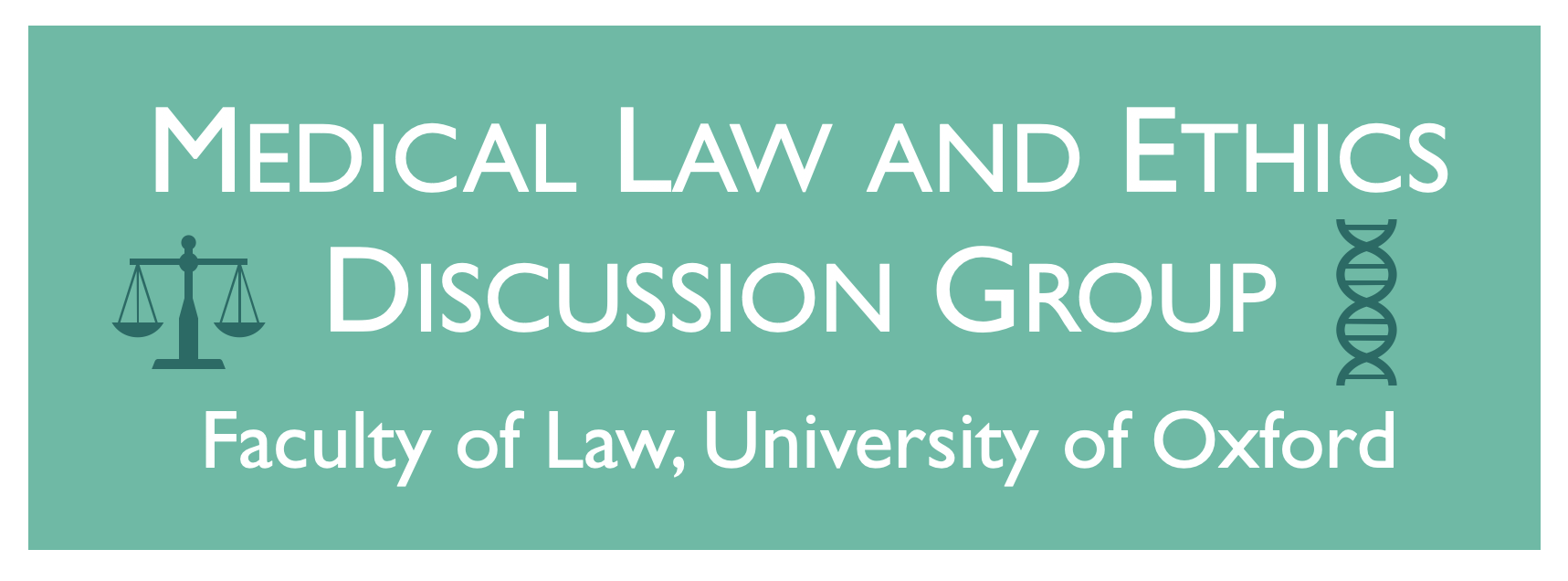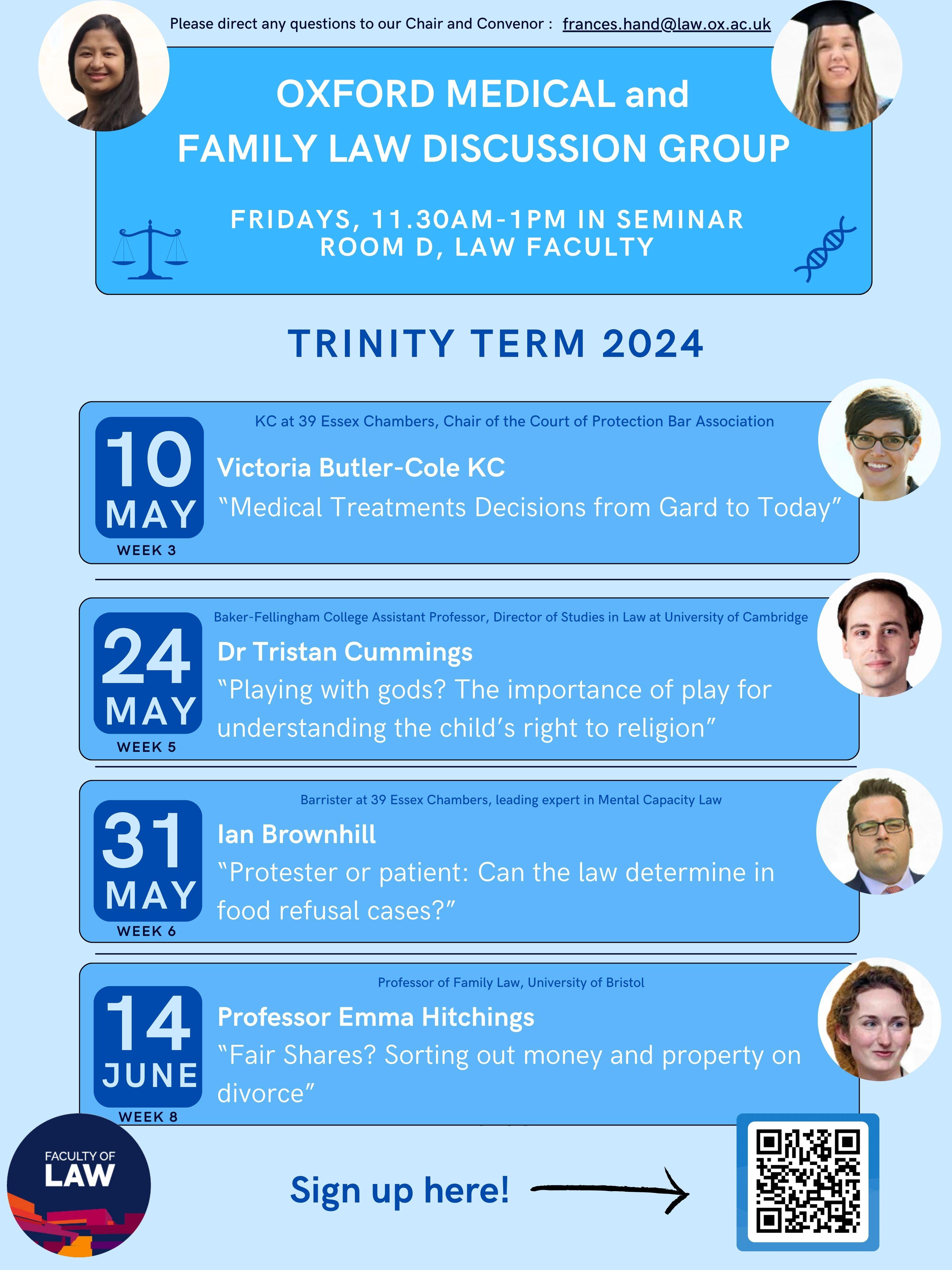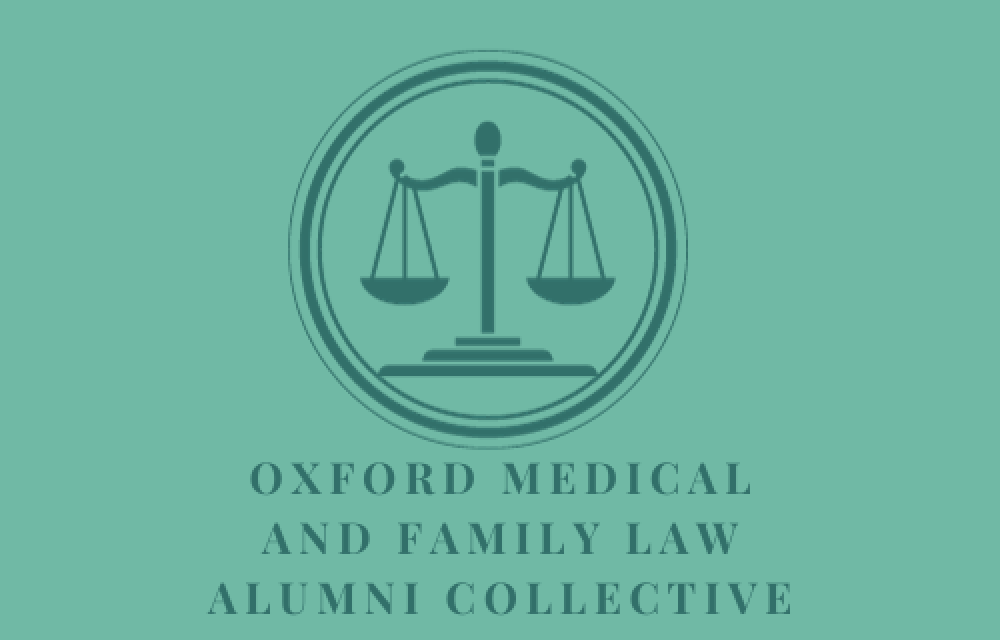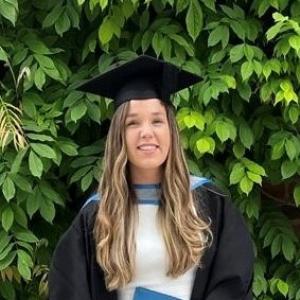
The Medical Law and Ethics discussion group began in 2012 by Andelka Phillips, Kate Greasley, and Jesse Wall. The group is currently convened by Frances Hand. While the group is based in the Law Faculty, it is interdisciplinary and aims to include ethicists, scientists, medical researchers, clinicians, and anyone interested in the medico-legal field. The Discussion Groups hosts several meetings each term, dealing with a broad range of medico-legal issues and with speakers from all parts of the country.
The paper presentations and discussions are open to all and you are warmly invited to attend. All events will be available for online participation and many will take place in person at Oxford as well. Please register in advance to receive updates about the events.
Anyone may join our mailing list by sending a blank email to mledg-subscribe@maillist.ox.ac.uk. You may also find us on Twitter @MLE_DG.
If you are a member of the Oxford University Faculty and wish to nominate a speaker, please complete the form in this link: https://forms.gle/7kmYZJCi7Gw73K1o6
---------------------------------------------------------------------------------------------------
Trinity Term Card

Friday 10th May (Week 3): Victoria Butler-Cole KC: 'Medical Treatment Decisions from Gard to Today'
Victoria Butler-Cole KC is an esteemed advocate from 39 Essex Chambers. Her expertise spans public law, community care, Court of Protection, medical treatment disputes involving babies and children, inquests, human rights claims, and regulatory appeals. In her presentation Ms Butler-Cole will be discussing her work as representative for the Guardian of Charlie Gard and how subsequently decisions on novel treatment and the withdrawal of life-sustaining treatment have been impacted by the case.
Friday 24th May (Week 5): Dr Tristan Cummings, 'Playing with gods? The importance of play for understanding the child’s right to religion'
Tristan Cummings is the Baker-Fellingham College Assistant Professor at St Catharine’s College, Cambridge. Previously, he worked as a Stipendiary Lecturer at Merton College, Oxford where he is also a PhD researcher in law. His current research focuses on the intersection of family law, human rights law and religious freedom with a particular interest in the regulation of religious family law through a systems theoretical and reflexive law model. In his presentation, Dr Cummings will discuss the following:
At the root of religion, argues Hugo Rahner, is the metaphor of play. The relationship between play and religion runs deeply. David Miller reasons that play refers to a ‘mode of consciousness’, not (just) to a certain behaviour; play alludes to a ‘profound reality’. This presentation seeks to elucidate some of the connections between the right to play and the child’s right to religion, Article 14 UNCRC. Play is both an activity, connecting the child with others, and an attitude that transcends reality. Building on my forthcoming chapter in Naomi Lott's edited collection, this presentation draws together some of the interrelationships between play and religion as rights from a child-centred perspective to argue that a proper understanding of Article 14 UNCRC must make room for play.
Friday 31st May (Week 6): Ian Brownhill, 'Protester or patient: Can the law determine in food refusal cases?'
Ian Brownhill is a renowned advocate from 39 Essex Chambers and one of the country’s leading specialists in mental capacity and medical treatment. Outside of his expertise in the Court of Protection, Mr Brownhill advises and acts in safeguarding cases in respect of both adults and children. Mr Brownhill has provided an overview of his discussion:
In respect of voluntary stopping eating and drinking, the law of England and Wales appears clear: if a patient has the capacity to make decisions as to whether to take food and drink, he is entitled to starve himself to death if he so chooses (as per Baker J in the Dr A case).
This presentation will focus on tensions between the principles of autonomy and respecting life:
-
How can the law differentiate between a patient on hunger strike due to a political belief or one experiencing a delusional disorder?
-
What does the law do when a patient refuses, or is unable, to explain their reason for stopping eating and drinking?
-
All patients will, at some stage, lose the mental capacity to make decisions as to their hydration and nutrition before their death. Does the Mental Capacity Act 2005 sufficiently protect the patient’s entitlement to starve themselves?
Friday 14th June (Week 8): Professor Emma Hitchings, 'Fair Shares? Sorting out money and property on divorce'
Professor Hitchings is a Professor of Family Law at the University of Bristol Law School. Her main research and teaching interests lie in the field of family law and family justice, in particular financial remedies on divorce. Professor Hitchings will be presenting her current work, leading the ‘Fair Shares on Divorce’ research project funded by the Nuffield Foundation. Professor Hitchings has provided the following overview:
In England and Wales, the 100,000 couples divorcing annually do so within a legal system which confers wide powers and broad discretion on the courts to allocate money and property between them regardless of prior ownership. Until now, the evidence base on arrangements made within the formal legal context has been poor. For the two-thirds of divorcing couples not using the legal system to reach a financial settlement, the nature of any arrangements made is undocumented. For those using the legal system, most of the reported case law involves couples with significant wealth, far from typical of the divorcing population.
The 'Fair Shares' research project, funded by the Nuffield Foundation, is the first nationally representative study in England and Wales of the financial and property arrangements that people make when they divorce. Using data collected from the project (including a survey from over 2,400 divorcees divorced in the past 5 years), this paper will provide an overview of some of the project's key findings, exploring how the current law regarding financial and property division on divorce works in practice for the entire divorcing population and provides recommendations to inform debate about what legal and procedural changes may be required.
Where can I register?
A reminder that, whether attending in person or online, registration is mandatory. It is always wonderful for our speakers if you can attend in person, and there is, of course the free lunch! This can be completed here:https://forms.office.com/e/kEsNQFxWEw
You will notice that there is one extra question on our form this term. We would be very appreciative if you would consider signing up for our feedback form. We always try to cater talks to the interests of our Community, but we cannot do this without your feedback. This will also be incredibly helpful for our successors to learn from as they take on the role of Convenor next year.





